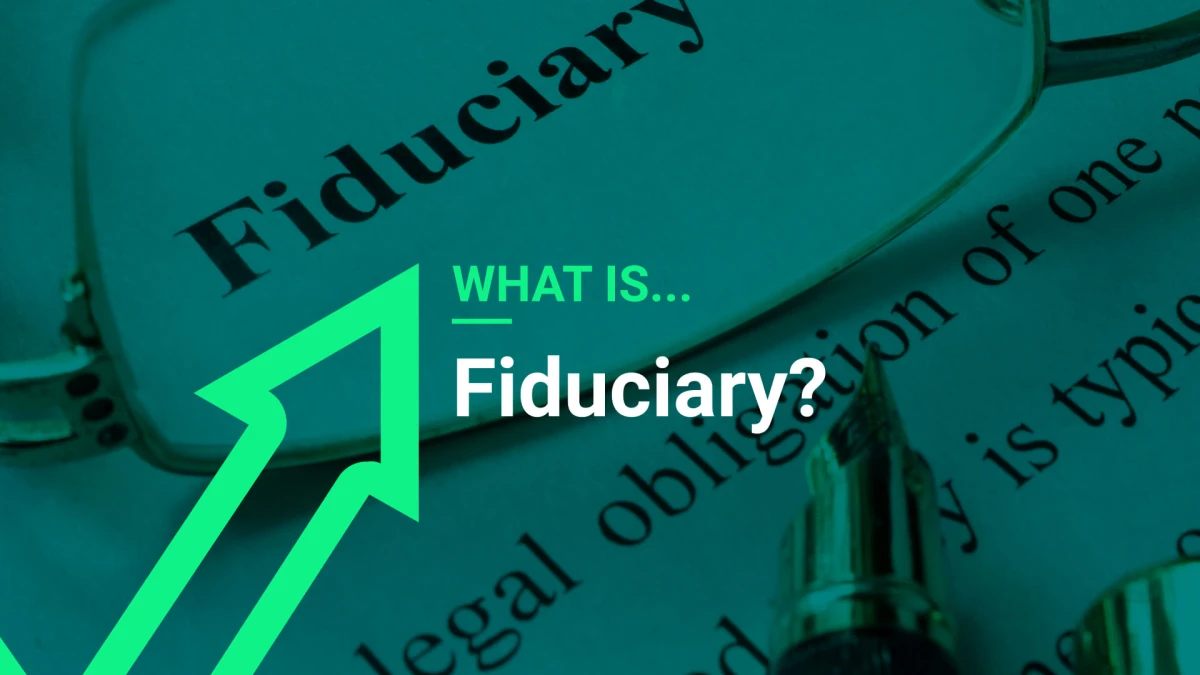The term fiduciary is given to an individual or organization that acts on the behalf of another person or persons. A fiduciary puts their clients’ interests before their own and has a duty to preserve good faith and trust and is bound both legally and ethically to ensure they act in others’ best interests.
In relation to finance, a fiduciary may be involved in tasks such as managing assets. For example, money managers, financial advisors, bankers, insurance agents, accountants, executors, board members and corporate offices may all have fiduciary responsibility.
#What a fiduciary does
In the world of investments the most common fiduciary relationship is between an investor and a financial advisor or broker. An advisor that has fiduciary responsibility must act in the best interests of their client and only buy and sell investments that are the best fit and most beneficial to their clients.
Not all financial advisors have fiduciary responsibility so it is crucial that investors do their research before appointing an advisor. Those without fiduciary responsibility may recommend investments or products that pay them bigger commissions rather than ones that are most suited to help the investor meet their financial objectives.
Another area where a fiduciary relationship exists is between board members and shareholders. Corporate directors can be considered trustees for stockholders if on the board of a corporation. In this relationship board members have the following specific duties:
The Duty of Care - The board must fully investigate all possible decisions and how they impact the business to ensure it is the best decision.
The Duty to Act in Good Faith - The board has a responsibility to make decisions that best serve the interests of the business and shareholders.
The Duty of Loyalty - Board members must not put other causes, interests or affiliations above its allegiance to the company and its investors.
Board members found to be in breach of these duties can be held accountable in a court of law either by the company or its shareholders.
#Types of fiduciary
The types of fiduciary relationships in finance and business include:
Trustee and beneficiary
Corporate board members and shareholders
Executors and legatees
Guardians and wards
Promoters and stock subscribers
Lawyers and clients
Investment corporations and investors
Insurance companies or agents and policyholders
#What else do you need to know?
Removing bias and developing trust
As an individual or company with fiduciary responsibilities must act in the best interests of their clients it ensures that all advice is free from bias. For example, fiduciary financial advisors must make recommendations that will benefit the investor and not themselves.
When seeking financial advice it can be difficult to know if your advisor is acting in your best interests, but choosing a fiduciary financial advisor helps build trust as they are legally bound to provide advice that best suits your needs.
Fraud and other risks
Fiduciary risk is when an agent is not optimally performing in the trustees best interests. This may not be intentional or for their own benefit, but if they were making more trades than necessary to improve an investor’s portfolio they could actually erode any gains with higher transaction costs.
Whereas fiduciary risk is not necessarily intentional, fiduciary fraud or abuse is intentional and is where an agent makes decisions that will benefit them more than their client. For example, this could be recommending investments that earn the agent higher commissions but small gains for the client.
